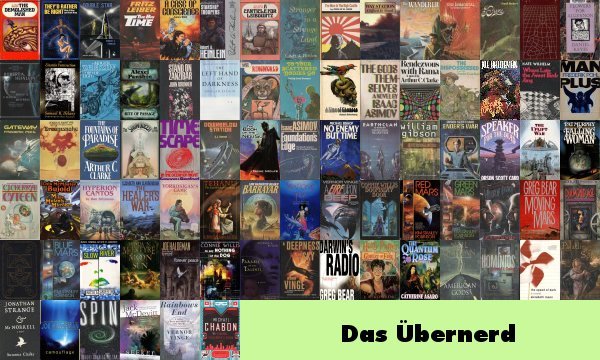 Frank Kelly Freas
Frank Kelly Freas1975 Hugo Winner for Best Professional Artist
"A Song for Lya"
by George R. R. Martin
1975 Hugo Winner for Best Novella
Before he was raking in the cash hand over fist with his A Song of Ice and Fire series George R. R. Martin was one of the hottest up and coming writers in science fiction. Then he took a break for fifteen years to work in television and almost entirely dropped out of the literary scene until coming back with his fantasy series. "A Song for Lya" is a perfect example of his spectacular early work.
At a trading output where humanity has encountered a peaceful alien race some of the humans are converting to the alien religion. This wouldn't be a problem except for the fact that as part of this religion a parasite that consumes the person is attached to them when they turn forty and within ten years they are completely devoured. To determine how to confront this a pair of telepathic consultants arrives. They're lovers and truth they find about the alien religion strains their relationship.
From the set up I suspect that most of you would be able to guess at least the superficial layer of the mystery presented in "A Song for Lya" (I won't spoil it if you can't), but Martin layers that well-worn path with a deeper meaning that gives the story an incredible power.
The telepaths are one of the better handling of the subject that I've encountered and I've seen Martin's ideas on it mimicked many times since. His telepaths have a connection to all other living things and while one them is not strong enough to do anything more than read emotional states the other can view the depths of the mind.
While I don't think it's completely intentional I received a very Lovecraftian vibe from the story. Obviously there's the strange cult that leads its follows to being consumed by an alien slime but deeper than that the true reason for the cult's attraction is almost exactly from Lovecraft's own writings on horror. The context is dramatically different but it's not hard to view the story from a chilling horror perspective. I can't go into details without revealing spoilers.
As one final note I've rewritten this short blurb six or seven times to minimize the spoilers in it. The story is wonderful and Martin builds a multilayered tale that is hardly matched in science fiction. To describe the interplay of story elements would be to ruin the exploration of them when you read it. I cannot recommend this story highly enough.
"Adrift Just Off the Islets of Langerhans: Latitude 38° 54' N, Longitude 77° 00' 13" W"
by Harlan Ellison
1975 Hugo Winner for Best Novelette
It also wins the award for the single longest title in the history of the Hugo awards.
Ellison is still in his style over substance phase in this story but he finally seems to be shifting out of it here. He leads off by cribbing a line from Kafka which should tell you something about where he's coming from. In this story Lawrence Talbot needs his friend Victor's help to search within him for something rather important. These sections are okay but when the viewpoint shifts into a chaotic mindscape complete with punchline to tell us that the whole thing was meaningless it just breaks down. Ellison stretches for meaning involving wasted lives but I never felt the connection back to the narrative. The end result is a story that by its own admission doesn't have a purpose and is, to go back to the title, adrift.
I did find it to be better than Ellison's winners that immediately preceded ("The Deathbird", for one) it but I felt it was undermined by his taking other people's intellectual property and using it ("Victor" is in the public domain but "Lawrence Talbot" definitely is not). Ellison has rankled under even tangential uses of something vaguely resembling something he's written; seeing him do the same thing just sits wrong to me.
"The Hole Man"
by Larry Niven
1975 Hugo Winner for Best Short Story
On Mars an alien device that communicates by projecting gravity waves is found. The expedition's scientist theorizes that a quantum singularity powers it and that leads to tension with the mission commander who apparently doesn't believe his expedition's physicist when he talks about physics.
This is a minor effort by Niven which I suspect got some attention for featuring what was then a very popular subject: black holes. The theory was gaining popularity then and this story contains little more than the idea of a black hole powered communicator. The characters are one-dimensional and exist solely to serve the plot which, frankly, isn't that interesting. The idea that humanity finds its first sign of alien life but the really important thing is that black hole is laughable.
A real problem with "The Hole Man" is that Niven immediately went back to the same idea and reworked it as a space opera for "The Borderlands of Sol" which won the Hugo next year. This story is completely eclipsed by the much better "Borderlands" so read that story and let this one sit forgotten.
